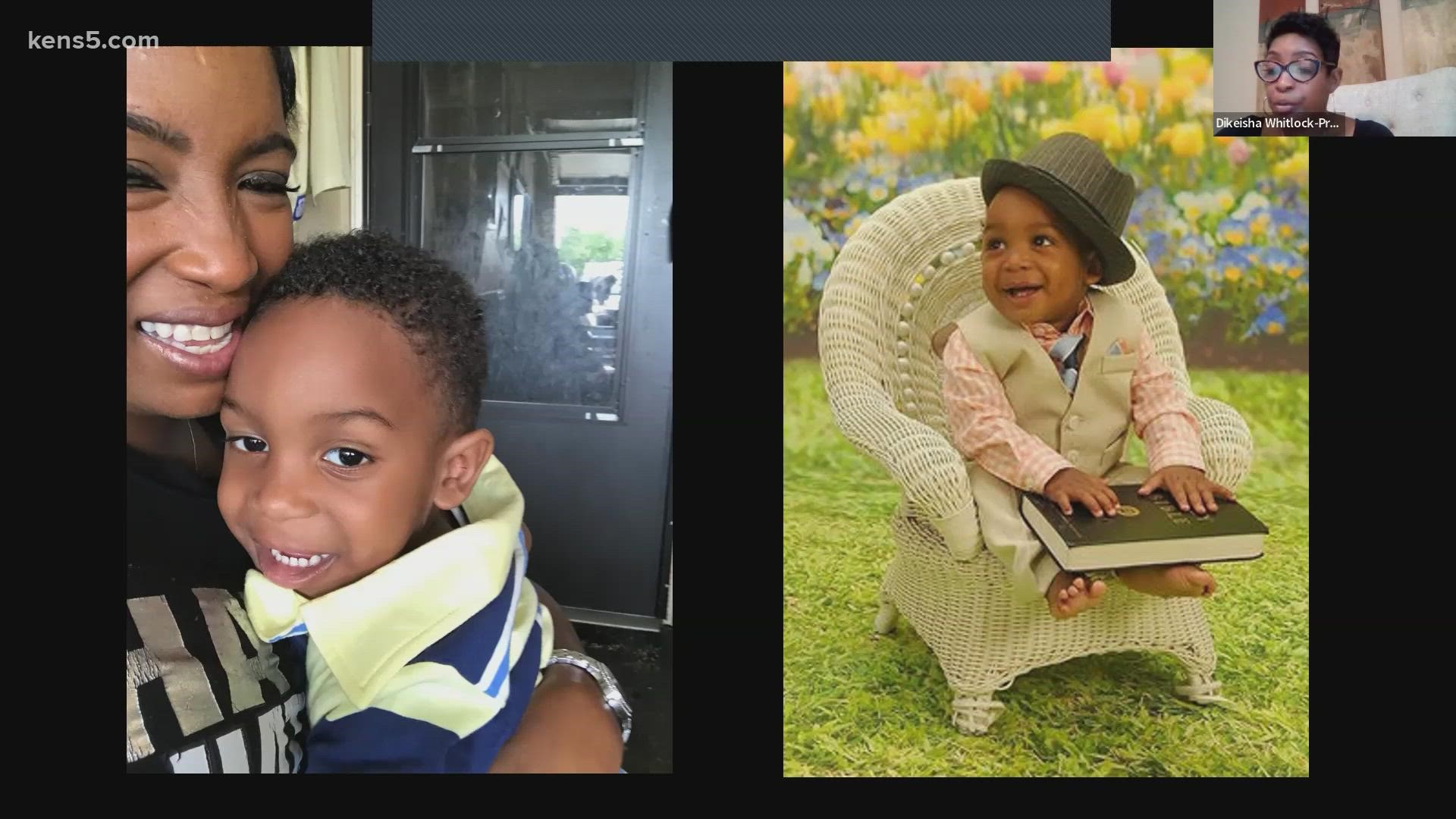SAN ANTONIO — Since 1990, more than 1,000 children in the U.S. have died after being left in cars in hot weather. Thousands more have been injured.
A law requiring technology to prevent these tragedies will soon take effect, but advocates say it doesn’t go far enough.
“I would be gearing up today to celebrate his birthday today,” Dikeisha Whitlock-Pryer said of her son, RJ, over a Zoom call with lawmakers, advocates and journalists.
“Right now, I’d be preparing,” she added. “Instead, I’m here talking to you,”
Whitlock-Pryer started the RJ Foundation for Kids after losing her son on July 19, 2018. Its stated goal is to bring awareness to the importance of child safety.
“He was my lovebug, and he was actually my firstborn child. He was his dad’s little man.”
The 3-year-old died after being left on a daycare bus in northwest Houston for several hours. According to our sister station KHOU, the temperature inside the bus was 113 degrees.
“I don’t want to be here,” she said. “But what I don’t want even more than that is to allow another family to suffer this unbearable loss like we have.”
On Thursday, instead of celebrating his 7th birthday, she joined lawmakers and advocates with Kids and Car Safety in pushing to fast-track requirements that new cars be manufactured with occupant-detection technology.
“Children do not have to die in hot cars,” said Amber Rollins, director of Kids and Car Safety. “But these tragedies will continue to devastate families until vehicles can detect children, to protect children.”
Cognitive and Neural Science Professor Dr. David Diamond has done extensive research, interviewing parents from all walks of life who had lost a child in a hot car incident.
"And what I found was a pattern emerged," he said. "Something about that day, the incident, was different. And there's typically a change in routine."
He said that when a routine is broken, different parts of the brain can come into competition with each other, putting parents at risk of making a fatal mistake.
“The brain seems to create this false memory, that in fact, your child is at daycare. your child is safe,” Diamond said.
The bipartisan Infrastructure Investment and Jobs Act (IIJA, Pub. Law 117-58) passed last November does include new requirements for vehicles to have "audio and visual reminder alerts to check the back seat,’" but Janette Fennell, president and founder of Kids and Car Safety, says that’s not enough.
“We don’t want to have this false sense of security that children will be protected when they’re not,” Fennell said.
They are hoping to send a message to Transportation Secretary Pete Buttigieg to enact higher standards than the law requires sooner than the 2023 deadline requires.
"I'd encourage everyone watching today to contact Secretary Buttigieg and tell him to move quickly on the hot cars rule,” said Cathy Chase, president of Advocates for Highway and Auto Safety.

